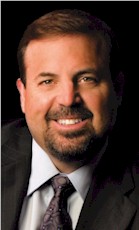
Wellness is seemingly everywhere. Our shampoo comes from the corner of healthy and happy; our workstations allow for standing, sitting, and walking; fast food joints are now in the healthy choices game; and even our margaritas' are skinny. The proliferation of health and wellness opportunities that have been thrust into our lives in the last few years have most of us wondering which end is up. Remember the 90's? The low-fat, no fat, low-calorie, no calorie craze had our heads spinning and guess what? We ended up fatter than ever. We need to look beyond the hype to discover what's best for our well-being. READ MORE



















